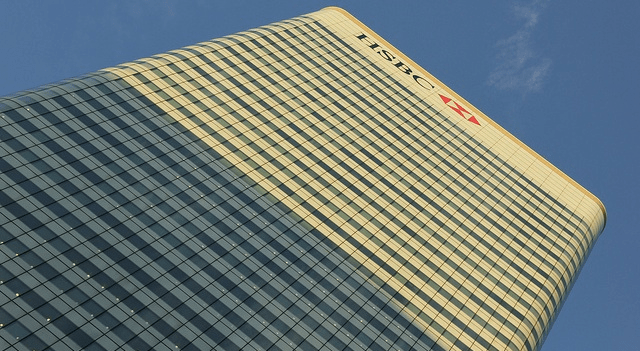HSBC Rescues Silicon Valley Bank UK
HSBC (LSE:HSBC) averted a crisis in Britain’s tech sector by rescuing Silicon Valley Bank’s UK arm, paying a symbolic £1 for the bank. CEO Noel Quinn led the frantic negotiations with UK Prime Minister Rishi Sunak, who is currently in the US for defence talks. A sale of the bank was the preferred choice of Chancellor Jeremy Hunt to avoid the UK government having to make a big intervention to protect depositors. The government and the Bank of England facilitated a private sale of Silicon Valley Bank UK to HSBC, ensuring that deposits would be protected without taxpayer support.[1]
Signature Bank Closed by Regulators
Signature Bank (NASDAQ:SBNY), one of the central banks in the crypto industry that manages assets worth $110 billion, was closed down during the night by American regulators, making it the second financial institution in three days to face closure. The bank had $80 billion in uninsured deposits, and its stock fell 23% on Thursday. Although the bank tried to reassure customers that it was in a strong financial position, it was unable to prevent the closure. Customers of both banks will have full access to their deposits thanks to a series of measures unveiled by the Federal Reserve, America’s Treasury, and the Federal Deposit Insurance Corporation.[2]
Soaring Inflation Impacts Stock Dividends
Soaring inflation has caused government-bond yields to rise to their highest levels in more than ten years, leading to a steady decline in the number of stocks that offer relatively high yields. There were just 34 stocks in the S&P 500 with a dividend yield above that on the six-month Treasury bill, according to Birinyi Associates. This is a significant shift from the previous decade when interest rates were close to zero, and hundreds of stocks in the index offered higher yields. At the end of 2021, there were 379 index constituents that offered a better yield than the Treasury bill.[3]
Aramco reports record profit
Saudi Arabia’s national oil company, Aramco, reported a record annual profit of $161 billion in 2022, the largest ever by an energy firm, boosting the kingdom’s coffers. The company’s yearly profit increased by 46% due to a rise in oil prices, cementing the kingdom’s dominance as the world’s most important oil producer and reinforcing its geopolitical power. Aramco is one of the world’s most valuable companies, with a market cap of $1.9 trillion, briefly surpassing Apple Inc. in May.[4]
Direct Line posts loss
UK insurer Direct Line (LSE:DLG) posted a loss last year due to surging inflation that affected its margins. The company did not manage cost increases and regulatory changes to pricing as effectively as it would have wished. The company is pursuing a range of actions to restore earnings and improve its solvency position after a few months of turmoil that saw it scrap its dividend and lose its chief executive. It swung from a £446mn net profit in 2021 to a £45mn loss in 2022 due to rising parts and labour costs, resulting in the highest weather-related costs since its listing a decade ago, at £149mn.[5]
USD Coin drops sharply
The USD Coin, a stablecoin operated by Circle Internet Financial Ltd. to replicate the value of the US dollar, experienced a sharp drop below 87 cents after the company revealed that $3.3 billion was tied up in the collapsed Silicon Valley Bank. The cryptocurrency is intended to trade exactly at $1, and is supported by real US dollars and short-term government debt. As a result, the decline in the value of the USD Coin has the potential to send shock waves through the cryptocurrency market, similar to the 2008 financial crisis when the Reserve Primary Fund “broke the buck.”[6]
Bitcoin surges
Bitcoin (COIN:BTCUSD) surged by 8.3% to $21,582, the largest increase in nearly a month, after US regulators pledged to fully protect all depositors’ money following the collapse of Silicon Valley Bank. The move came as Signature Bank was closed by New York state financial regulators but announced that depositors would still have access to their funds.[7]
First Republic Bank receives funding
First Republic Bank has received additional funding from the Federal Reserve and JPMorgan Chase & Co (NYSE:JPM) after being under pressure following the collapse of SVB Financial Corp. This fresh funding, which gives the bank $70 billion in unused liquidity, does not include the money it is eligible to borrow through a new Fed lending facility. Despite the situation, the bank’s executive chairman and CEO stated that its capital and liquidity positions are very strong and remain above regulatory thresholds for well-capitalized banks.[8]
Corporate bond ETFs gain influence
Corporate bond exchange traded funds have become increasingly influential on their underlying holdings, with research by Coalition Greenwich showing that trading volumes for 12 of the largest corporate bond ETFs rose from 18% to 23% between 2021 and 2022. The five high-yield ETFs saw an even greater increase, with average daily notional volume soaring from 30.5% to 47.4% of the underlying bonds. This essentially means that the ETFs accounted for nearly half of the daily traded value of the underlying bonds.[9]
Qualtrics acquired for $12.5bn
Silver Lake, a US private equity firm, and Canada’s largest pension fund have agreed to acquire Qualtrics for $12.5 billion, making it the largest private equity buyout of the year. The acquisition comes as Qualtrics owner SAP sells its 71% stake as part of a restructuring. Silver Lake has assembled a group of equity co-investors to ease the financing burden of the deal, which has been progressing despite concerns about global economic growth and rising interest rates. The group will pay $18.15 per share, valuing Qualtrics at $12.5 billion.
